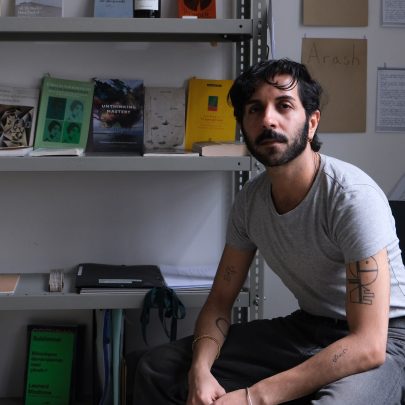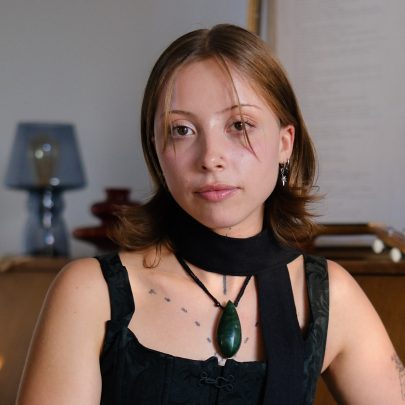Aug 17, 2018 Art
Tapu’s choice of career surprised his parents, who wanted him to be either a police officer or a teacher, “like my dad was in Samoa”. So did his move to Germany for work, far away from his close-knit family. Travelling between two cities on opposite sides of the world was tough for the young dancer. Living with Icelandic flatmates and meeting people from around the world, he noticed his upbringing hadn’t prepared him for moving in the same way his peers’ had. “Everyone in Berlin can speak, like, five languages. They’re all prepared to leave their homes, and I was sort of running on my charm.” Tapu could speak only one language at the time. “When I came home I started going to Samoan classes and brushing up on my te reo, because I was getting embarrassed about not being able to speak my mother tongue. I didn’t feel like myself.” He returned with a greater pride in his Samoan heritage and a better understanding of how his early experiences had shaped his dance practice.
Homecoming is a defining feature of Tapu’s latest work, which he performed as part of the Pacific Dance Festival at the Mangere Arts Centre in June. It’s a deeply personal retrospective, exploring themes such as manhood, youth suicide, cultural expectations and post-colonialism. “I’m a brown guy who’s been taught to dance by white teachers,” he explains, “and you can see that when you watch me perform.” He was once congratulated after a show with a back-handed compliment about dancing like a white guy. That’s addressed, too.
As a teenager, Tapu felt the hardships of growing up in a community with a strong gang presence. “When you come from a place like Otara there’s an expectation… you’ve gotta be good with your hands, fast on your feet, a sweet talker if the cops approach you. It’s an unspoken expectation, but you’ve just gotta know.” It was common for youth workers to walk the streets, searching for at-risk youth; Tapu and his friends were mentored by groups like these.
He’s carried this experience with him. “I’m a youth worker at heart. We were just neighbourhood kids around the park or the library and [the youth workers] put us in their sports teams and things like that. We were young; we were at the age where we could have swayed either way. We needed it, all these dudes needed it.” He now mentors kids like he and his friends used to be.
Suicide is rife in his community and, having been through his own low periods, he hopes this work can convey a message to anyone feeling the way he has.
“If I can be the bridge for [suicidal youth] to find healing or confidence, I think that’s mainly why I made the work.”
The work’s title refers to Tapu’s first name, Naughton, given to him by his parents in the wake of the dawn raids on Pacific Islanders in Auckland and beyond during the 1970s. They felt it would be safer and that he’d be at less of a disadvantage in life if he had a “white name”. Goodbye Naughton rejects that idea, leaving Tapu free to create his own identity through dance deeply rooted in the Samoan culture he’s so proud of.
Goodbye Naughton was performed as part of the Pacific Dance Festival in June.






